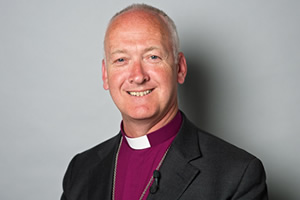Are you are fan of religious broadcasting?
It is hardly surprising, but I am a fan of religious broadcasting. Not any religious broadcasting, or bad religious broadcasting, but good and excellent religious broadcasting. And there is plenty of it about. However, much that would qualify as such does not hit the radar of most commissioning editors or producers.
One of the most frequently expressed prejudices about religious broadcasting is that it involves broadcasting religion. In other words, it is about evangelising, proselytising, propaganda or privileged special pleading for fantasists and escapists. If it was, I would not want any part in it. There is no place in public service broadcasting in particular for such activities.
Yet, broadcasting (as opposed to narrowcasting) always involves assumptions on the part of writers and producers about how the world is and why it is the way it is. There is no neutral space that can be occupied by the non-religious holder of the middle ground; everyone holds a world view through which events are seen, interpreted and mediated, and religious world views are as valid as any others.
This is a drum that needs to be banged regularly. Because good religious broadcasting offers a particular lens through which the world and its people can be seen. It does not demand uncritical assent, but invites critical reflection on how the world is and how people behave.
Religion necessarily involves real people who live in real communities which espouse real values and behaviours. It is impossible to understand the world we see on our news screens if we don’t understand religion – not just religious phenomena, but the motivation that religion fires for public behaviour. In other words, 9/11 is incomprehensible without an understanding of Islam, its factions and histories, its personalities and politics. Contemporary German politics and economics are incomprehensible without a proper appreciation of the Christian history of Germany through the Reformation, Bismark, Weimar, Hitler, division and reunification.
Good religious broadcasting tells intriguing human stories, but digs deep into motivation and spiritual as well as moral values. And just as good economics broadcasting demands interpreters who know their subject, so religious broadcasting requires presenters and interpreters who empathise with their subjects, and don’t pretend to some neutral scepticism that implies that cynicism is clever.
The Sandford St Martin Trust exists to promote excellence in religious broadcasting: excellence in explaining and portraying religion (as dogma and practice), excellence in interpreting the world in the light of religion, and excellence in handling religious themes with the same intelligence and integrity as must apply elsewhere.




Trackbacks & Pingbacks
[…] The first in a series of guest blogs is written by me, but to read it you will have to pop over to the website here! […]
Leave a Reply
Want to join the discussion?Feel free to contribute!